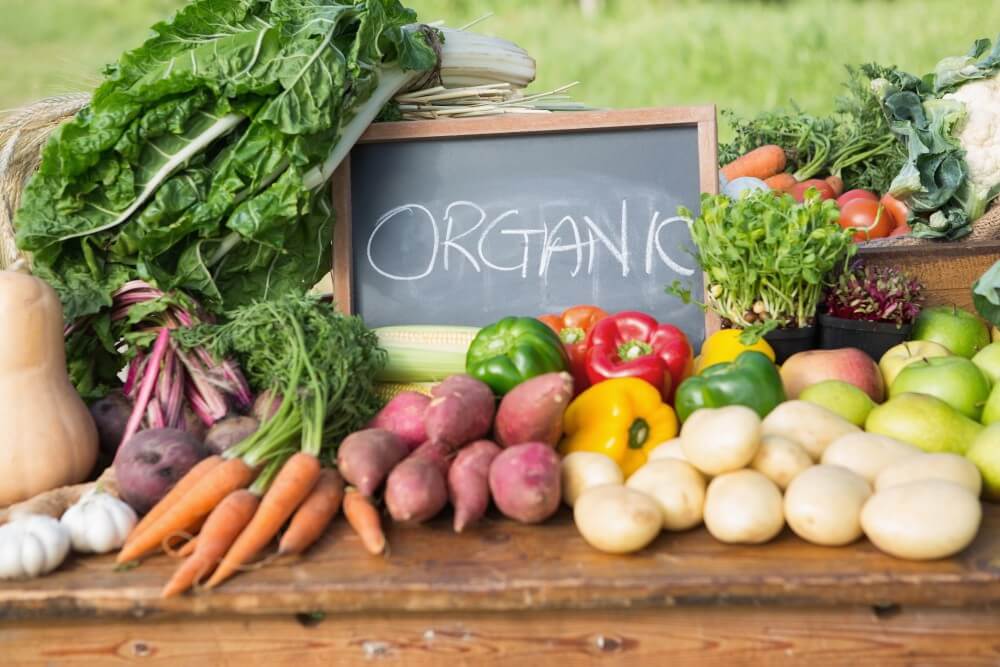
Decoding Organic Food: Is it better for you?
When you walk into a supermarket, you’re bombarded with labels like “organic“, “gluten-free” and “all-natural.” While these labels sound healthy, do you really know what they mean? At Winson Health, we’re here to shed light on the topic and help you understand the health benefits of organic food and how to shop for it without breaking the bank.
What Does “Organic” Mean? Nowadays, you’ll find both conventional and organic options for most types of food. The difference lies in the farming practices and production guidelines set by the USDA for organic food. Organic food is cultivated without the use of synthetic pesticides, fertilizers, hormones, or genetic modification. It’s a more natural and sustainable approach to farming.
Benefits of Organic Food:
- Fewer harmful substances: By choosing organic, you reduce your exposure to toxins found in conventional non-organic food. Pesticides used in conventional farming have been linked to various health conditions, including cancer, neurodegenerative diseases, birth defects, and sterility. Organic food is grown without these harmful chemicals, making it a safer choice for your health.
- Animal welfare and sustainability: Organic meat and dairy come from animals raised in natural settings, without antibiotics or hormones. Organic farming methods also prioritize environmental sustainability through practices like crop rotation. By consuming organic food, you support animal welfare and contribute to a healthier planet.
- Enhanced nutrient absorption: While the comparative nutritional value of organic versus conventional food is still debated, organic food’s absence of chemicals and pesticides may allow your body to absorb vitamins and nutrients more effectively. It’s a wholesome choice for your overall well-being.

Tips for Shopping Organic on a Budget:
- Plan ahead: Prepare meals in advance and make a grocery list that covers all the essential food groups. Planning your meals helps you make healthier choices and reduce food waste.
- Prioritize produce: If you’re on a budget, focus on buying organic fruits and vegetables with edible skin, like peppers, berries, and potatoes. For produce with inedible skin, you can opt for conventionally grown varieties to save money.
- Shop local and seasonal: Explore your local farmer’s market for seasonal produce from nearby farms. Buying locally and in-season not only supports the local economy but also reduces the environmental impact of transportation.
- Buy in bulk: Many health food stores offer organic grains in bulk at a lower cost. Bring your reusable containers to minimize plastic waste.
- Consider growing your own: If possible, try growing your own food. It allows you to have complete control over how your food is grown and gives you a closer connection to your environment.
- Stick to the perimeter: Shop around the outer edges of the supermarket where fresh produce, meats, and dairy are typically located. These sections often offer organic options. Additionally, check out the organic aisle for other organic items like grains and frozen foods.
- Read labels: Pay attention to labels on packaged goods to make informed choices about your food. Look for products with high organic ingredient percentages.
- Start with the basics: Begin by prioritizing organic milk, potatoes, peanut butter, ketchup, and apples. These staples can form the foundation of your organic pantry.
- Making the Case for Organic: Choosing organic food not only benefits your health but also supports sustainable farming practices and animal welfare. By opting for organic, you’re taking a stand for a healthier you and a healthier planet.
If you’re interested in exploring more ways to eat healthy or need guidance on organic shopping, consult a nutritionist or dietitian. At Winson Health, we’re here to support your journey towards a healthier lifestyle. Visit our website for more information and request resources on organic food and health insurance coverage options tailored to your needs.
Disclaimer: This blog post is for informational purposes only and does not constitute medical advice. Consult with a healthcare professional for personalized guidance on your diet and health.


